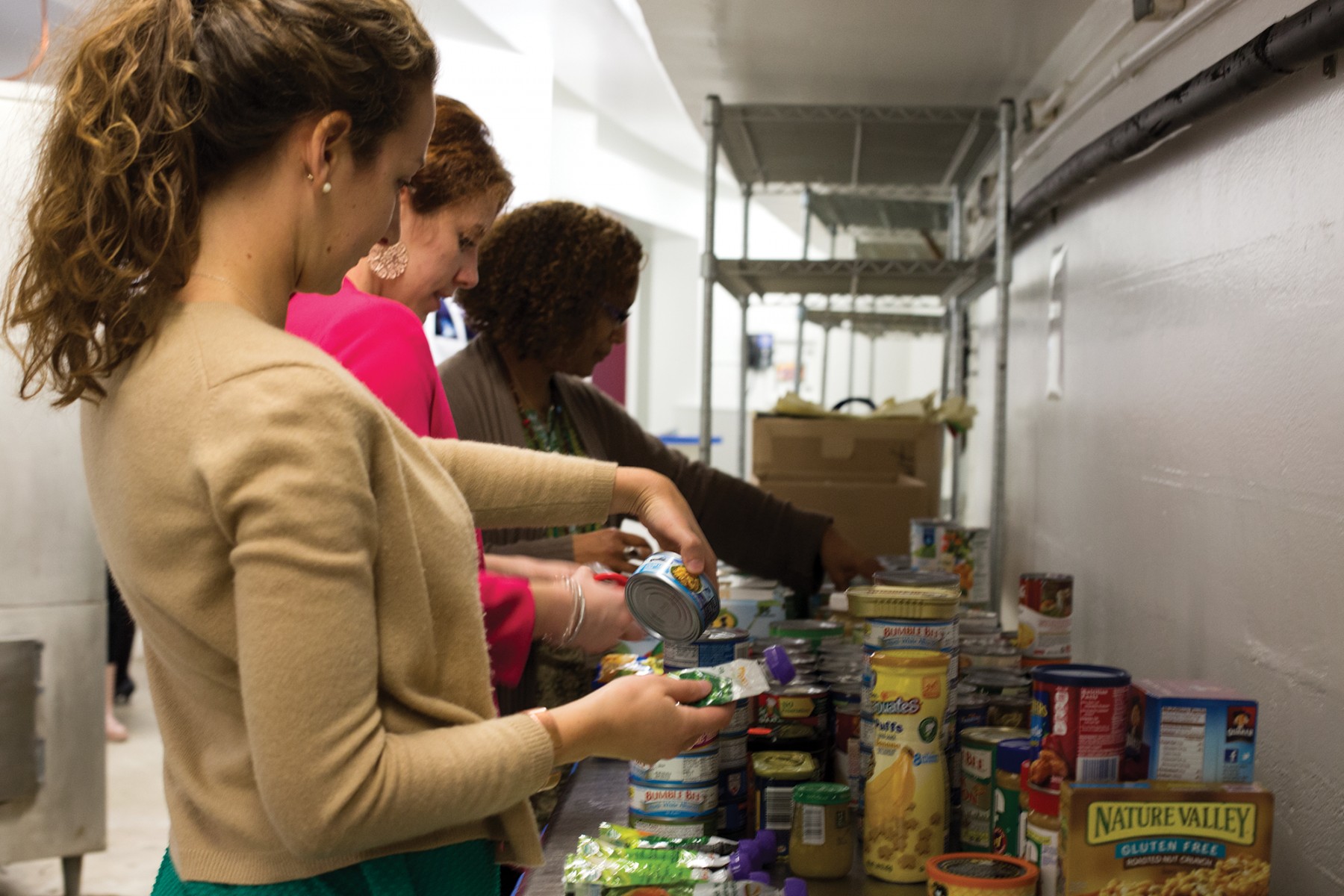Beginning this semester, the University of Maryland’s Campus Pantry is allowing individual food pick-up appointments for those suffering from food insecurity, said Allison Tjaden, the sustainability and wellness coordinator for Dining Services.
The change is meant to provide an option to current students, faculty or staff members who don’t feel comfortable coming in with several other people, or if they have a conflict with the normal pick-up time, which alternates between Fridays from noon to 3 p.m. and Thursdays from 3 to 6 p.m.
Individual appointments can be made by emailing campuspantry@umd.edu or calling 301-314-8054.
“We’re trying to make sure we’re as available as we can be for students that are in need,” she said.
The Campus Pantry — which is a collaboration between Dining Services, the University Health Center, the public health school and others — has been open every Thursday and Friday since the program began in October 2014. One day is for people to drop off donations, and the other day is for people to pick up food, Tjaden said.
The operation moved from Cole Field House to the University Health Center last fall. The program has done well despite the fact that the Campus Pantry had to move its services, Tjaden said.
“We’ve seen the program grow since it started. … We’ve seen more people participating both through donations but also clients accessing the pantry from the first year to the second year,” she said.
Aynsley Toews, a project manager from the Office of Sustainability, said the Campus Pantry addresses an aspect of sustainability that is often overlooked. A good definition of sustainability, Toews said, includes three elements: economic sustainability, social sustainability and environmental sustainability.
“Sometimes we get stuck focusing on the environmental side of it and forget about the others, but we really need to focus on all three,” she said. “What the Pantry speaks to is social equity. People must be able to meet their basic needs before they can think about other issues on campus, like environmental issues or whatever topics are important to them.”
Although the mission is praised throughout the campus for those who are familiar with the Campus Pantry, many students and staff may not be aware that a program like this exists, said Andrea Vo, a sophomore civil and environmental engineering major.
Vo said she hadn’t heard about the program before, but added that it seems like a great idea. The only problem, she noted, seems to be awareness.
“I don’t really think people are aware enough,” she said. “Even I’m not, and I come from a background where in high school I did a lot of stuff with food banks. … I just haven’t ever thought about people in our community going through the same thing.”
It is very important for students to be aware of the program for two main reasons: in case they need to take advantage of this service, and to see their actions make an impact right in their own community, Toews said.
“This is a way that you can impact your fellow students, and have an impact right here at home,” she said.
Tjaden emphasized that raising awareness is something they have been putting focus on recently. The Campus Pantry currently has a team of six student interns who work on food distributions, donations and food sorting shifts, and also on communications, outreach and building partnerships with other organizations.
One of the groups and businesses it has partnered with is Nando’s Peri-Peri. On two separate occasions, the restaurant has raised money for the Campus Pantry. The first time was when Nando’s donated 100 percent of its three-day soft opening sales to the Campus Pantry, raising nearly $30,000, according to a November Diamondback article.
The second major donation came from a Nando’s Green Tidings special, which was available for one day during the spring, according to a March Diamondback article.
The Campus Pantry has used the money from the first collaboration to supplement food drive donations and make sure the shelves are always stocked with food, Tjaden said. He noted they are still processing the donation from the food truck takeover.
Partnership opportunities like that help a lot, Tjaden said.
“We’re always looking for partners. … As we are ramping up for the semester, we will be looking forward to finding those kinds of opportunities,” she said.



